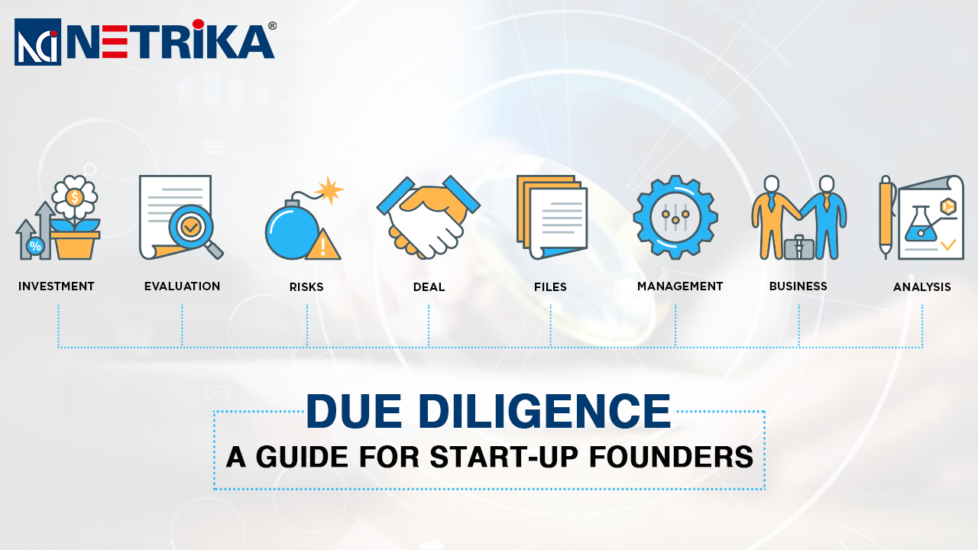Due Diligence: A guide for Start-up Founders
- November 15, 2022
- Posted by: Netrika
- Category: Due Diligence

There are more than 150 companies in the e-commerce space itself. This number will only mushroom in years to come. There are 75,000 start-ups in the country, which coincides with the 75th year of independence. The Department for Promotion of Industry and Internal Trade (DPIIT) has recognized over 75,000 start-ups – a milestone that coincides with India’s 75th year of independence. Not all start-ups need to succeed but what is commonly observed is that they look for potential investors and vice versa. Counterparty Due Diligence (CDD) is what will help the process of decision-making. The little money spent on this process is a must for companies to avoid/address the potential risks. Please remember a “Penny spent well is a penny saved “. This will only help the businesses in the decision-making process in the right direction. India has the third-largest ecosystem for start-ups, yet 80-90% of Indian start-ups fail within the first five years of their inception. Ever wondered why many start-ups fail?
Though the Indian start-ups’ dream took off some time back, it seems to be crashing down in 2022 due to the post-pandemic effects. Changing trends have also changed the cost of business; legal compliances are cropping up, companies are unable to shift business models, and some have even spent money recklessly, not having done the due diligence properly.
Counterparty Due Diligence (CDD) of Start-ups
Start-ups need to undergo the CDD (counterparty due diligence) process to attract customers to invest in their companies. CDD of start-ups will give a snapshot view to the potential investor of the following:
- What all pitfalls his/her investment is likely to face?
- What are the areas of focus?
- Potential red flags
- Risks that the potential investor is likely to face
The investment in due diligence can save a lot of money for the investor. Based on the CDD report, the potential investor can decide whether they’d need to invest in the start-up company (potential) or not.
CDD of Potential Investors
All start-ups look for investors. Most people cannot start a company on their own. They have an idea, and to execute the same, they look for potential investors. They make all investment decisions based on the investments they receive. As an ethical start-up, one should not accept investment from all and sundry. This distinction can only be drawn by the start-up companies, by the process of CDD of the potential investors. The process of CDD of potential investors is likely to yield the following:
- What pitfalls is the company likely to face from potential investors?
- What are the areas of focus?
- Potential red flags
- Risks that the potential start-up companies are likely to face. For example, risks due to money laundering, etc.
Investors and start-ups need to undergo the CDD process to know the risks beforehand, as it will help in the decision-making process.
– Col Sanganagouda Dhawalgi
(CFE Executive Director-FI)
